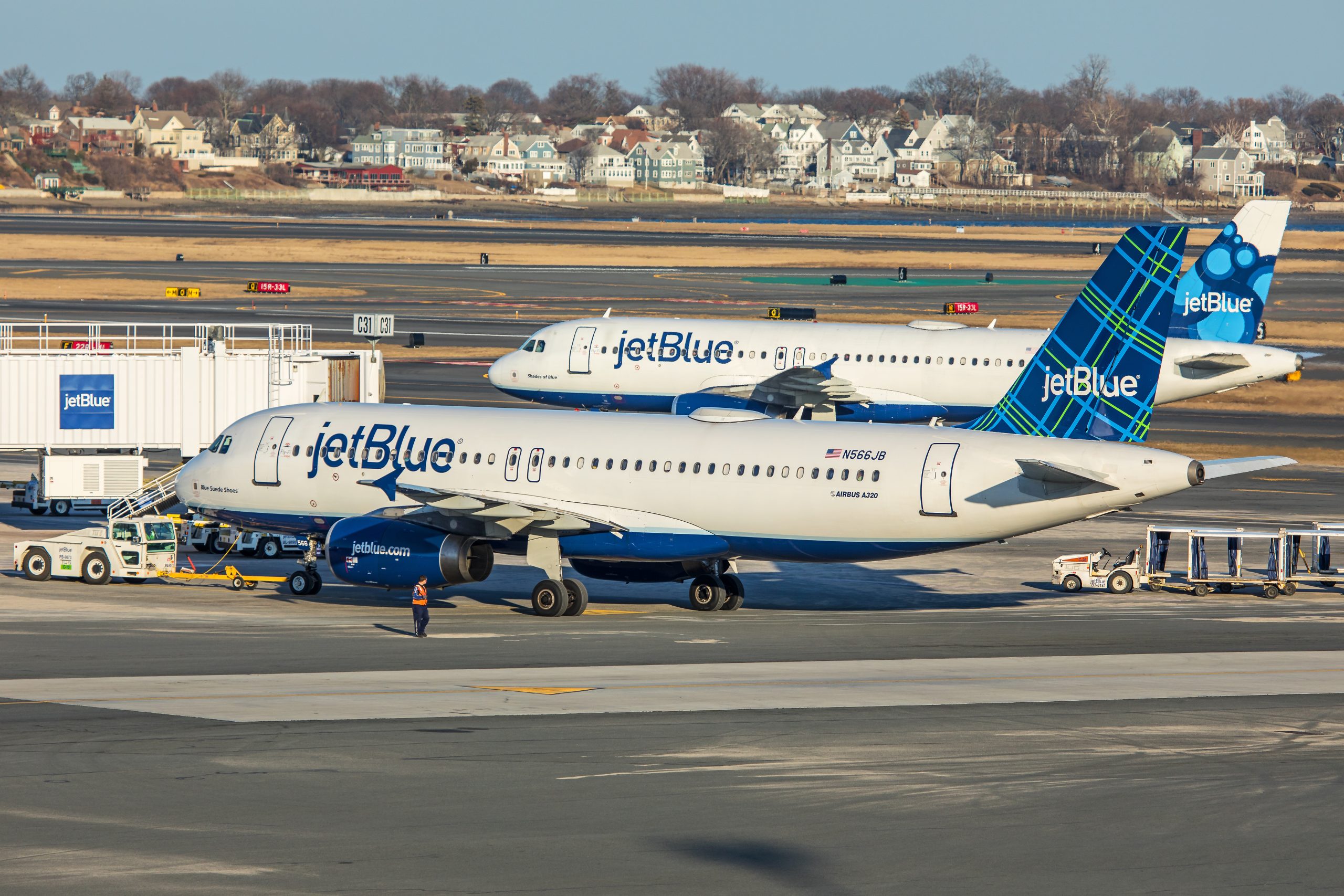
JetBlue Reveals Diminished First Quarter Earnings
On Tuesday, JetBlue announced that it has adjusted its annual revenue forecast. The carrier announced that its revenue will be…

A 777X lines up on the runway to conduct taxi and brake tests at Paine Field. (Photo: AirlineGeeks | Katie Bailey)
In the midst of economic turmoil precipitated by the worldwide fallout from the novel coronavirus, U.S. companies and industry advocates have lined up to request government aid in order to keep themselves afloat.
Another company added its name to list on March 17 as Chicago-based Boeing threw its support behind at least $60 billion in aid for the aerospace manufacturers in the U.S.
Formerly the world’s largest aircraft manufacturer, the company emphasized its role as the largest exporter in the country, its supply chain comprising more than 17,000 contractors and sub-contractors with more than 2.5 million jobs.
“This will be one of the most important ways for airlines, airports, suppliers and manufacturers to bridge to recovery,” the company said in a statement. “Funds would support the health of the broader aviation industry because much of any liquidity support to Boeing will be used for payments to suppliers to maintain the health of the supply chain.”
Further, Boeing stressed that the aid would help facilitate a return to the status quo, even as some of its biggest customers in the commercial aviation industry begin to falter for the first time in a decade.
“The long term outlook for the industry is still strong, but until global passenger traffic resumes to normal levels, these measures are needed to manage the pressure on the aviation sector and the economy as a whole,” the statement added.
The past 12 months have seen Boeing tumble from a high it once seemed it would never lose. At the end of one trading day in March 2019, its stock closed above $440 to cap off a multi-year climb that had seen the company stumble, but never truly fall.
But later that month, the second crash of the Boeing 737 MAX set of a chain of events. What began with the eventual grounding of the aircraft, the manufacturer was forced to halt production in the midst of a still-ongoing process to regain the trust of the Federal Aviation Administration and the flying public.
But when, in early morning trading on Wednesday, Boeing’s share price dropped below $100 for the first time since 2013, the MAX issues were just the tip of the iceberg. Rather, the reaction of governments, investors and consumers to the danger posed by COVID-19 was rearing its ugly head for one of the most publicly beleaguered companies in the U.S.
In searching “a minimum of $60 billion in access to public and private liquidity, including loan guarantees, for the aerospace manufacturing industry,” Boeing is leaning on its standing as possibly being too important to fail.
As recently as 2018, Boeing alone comprised nearly half a percent of the entire U.S. gross domestic product. And the company will claim its role as an employer — both directly and via its unparalleled supply chain — and as a defense contractor mean its demise could be detrimental to millions of peoples’ livelihoods.
Boeing’s request for aid has rubbed some analysts the wrong way given the company’s actions in recent years. Beginning in June 2013, an aggressive share buyback program that was only halted after the company hit cash flow problems last year saw Boeing spend $43 billion on share buybacks, nearly 75 percent of the $60 billion it’s searching for.
2019 saw an operating cash flow loss of over $2.6 billion for the company. And with the new developments surrounding the coronavirus and the ensuing decimation of the travel industry, it’s likely 2020 will be far worse.
How Boeing will fare over the course of the coming months and years will likely depend on the size of any lasting impact on consumers’ willingness to travel at that time. A larger recession could spell the end of the 737 MAX and force Boeing to reassess how it conducts business, while a smaller dry spell could simply delay the manufacturer’s launch of the Boeing 777X and relaunch of the MAX.
But in either case, it’s likely an aid package is coming, the only questions being its size and what strings, if any, will be attached as Boeing looks to regain its feet after a year of near-endless setbacks.
Parker joined AirlineGeeks as a writer and photographer in 2016, combining his longtime love for aviation with a newfound passion for journalism. Since then, he’s worked as a Senior Writer before becoming Editor-in-Chief of the site in 2020. Originally from Dallas and an American frequent flyer, he left behind the city’s rich aviation history to attend college in North Carolina, where he’s studying economics.
Receive a daily dose of the airline industry's top stories along with market insights right in your inbox.

On Tuesday, JetBlue announced that it has adjusted its annual revenue forecast. The carrier announced that its revenue will be…

Royal Air Maroc and Safran have deepened their collaboration in aircraft engine maintenance. In celebration of its 25th anniversary, Safran…

The importance of the North American market to Fiji Airways has been further highlighted with the announcement of an interline…



